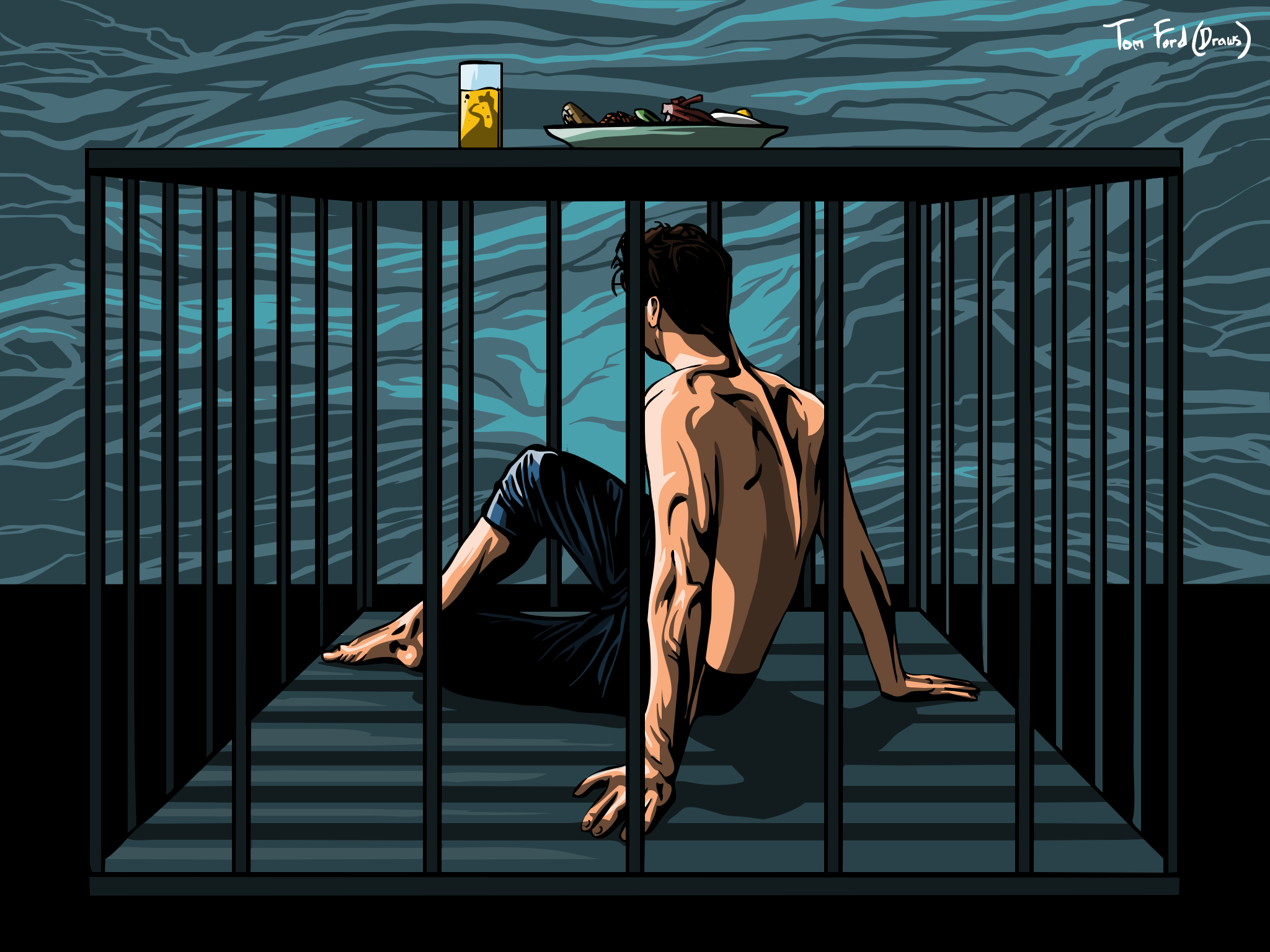Why the question ‘What did you have for breakfast?’ can be a hard one
Continuing her series on socially unacceptable questions, Christine Manby explains how to broach one of the most difficult subjects of all, to mark Eating Disorders Awareness Week


What did you have for breakfast?” is the sort of neutral question that doesn’t seem like it should be difficult to answer. For that reason, it’s often used by sound engineers to check mic levels in a radio studio before a show goes live. “What did you have for breakfast?” they ask the latest person in the chair.
It’s a banal question. It’s neutral. It doesn’t require much thought to respond. Everyone can tell you what they had for breakfast. Yet, Beat, the UK’s eating disorder charity, wants us to understand that for the estimated 1.25 million people in the UK who have an eating disorder, it can be a very difficult question indeed.
This week is Eating Disorders Awareness Week and Beat wants to break down the stereotypes that keep us from talking about eating disorders in an open and helpful way. The perception is that eating disorders only affect young, affluent white women and that they all manifest in the same way and they’re all about looking like a supermodel.
It isn’t true. To begin with, while eating disorders are more common in females than males, it’s believed that as many as one in four sufferers are men. Neither are eating disorders the exclusive preserve of the young. While eating disorders are most common in girls and young women between the ages of 12 and 20, they affect people in their sixties and seventies too. As many as one in 30 people with eating disorders are in mid-life, with binge eating disorder particularly prevalent in this age group. The prejudice around binge-eating is particularly problematic, with fat-shaming increasingly common.
There’s also a pervasive but dangerous idea that eating disorders are nothing more than “a diet gone too far” or “a phase” or even a “lifestyle choice”. You don’t choose to have an eating disorder. Research suggests that they may be caused by a combination of biological predisposition and a social or environmental “trigger” such as bereavement or stress. Whatever the cause, Beat is keen to impress upon us all: “Eating disorders are serious mental illnesses which require prompt, appropriate treatment.” Indeed, anorexia nervosa has the highest mortality rate of any mental illness.
Which brings us back to our question. What did you have for breakfast? If you’re concerned that someone you love has an eating disorder, checking up on what they’ve had to eat seems like a good place to start. But Tom Quinn, Beat’s director of external affairs, explains otherwise: “If you’re worried about a loved one’s eating, whether they are not eating enough or they are binge eating, the last place you should bring it up is at the dinner table. You should avoid meals or the run-up to a meal altogether. It’s important not to focus the conversation on food or weight.”
It sounds counterintuitive, but then, Quinn explains, eating disorders aren’t just about food. “Eating disorders are a form of coping with uncomfortable feelings. They are very often a way of dealing with stress, anxiety and low self-esteem. They are a means of controlling unhappy thoughts and emotions.”
So how do you open the conversation? Quinn suggests taking the time to prepare yourself. The Beat website, beateatingdisorders.org.uk, contains links to lots of useful information which you could even print out for your friend or loved one to read later. Choose your moment, away from the high stress context of a meal or food preparation, then, “open the conversation up to the theme of thoughts and feelings rather than behaviours. Rather than saying, ‘I don’t think you’re eating enough’, you might say, ‘I’ve noticed you don’t seem yourself.’ Bring the conversation round to a bigger context.”
Quinn warns that “illness will make some people defensive or even angry when you start talking, so try to stay calm. If the situation gets too heated, agree to take a break and come back to the conversation at another time. But don’t abandon your attempt to talk altogether just because it seems difficult. Speaking to people who have recovered, it’s clear that breaking the silence was critical to their recovery. Also, the longer someone is ill, the tougher they’ll find it to recover, so early intervention is key.”

Quinn also warns that the physical signs of an eating disorder may not be obvious until quite a late stage. It’s likely that people with anorexia will lose a significant amount of weight but people with binge eating disorder and bulimia may not change much at all. However, patterns of behaviour are common: an obsession with food, mood alterations and defensiveness, and becoming socially withdrawn, especially at mealtimes. It’s common for people with eating disorders to have low energy. Restricting food is an obvious cause but so is getting up to binge in the middle of the night. Body dysmorphia – where someone spends a lot of time worrying about flaws in their appearance, which are often not noticeable to others – is another widespread feature.
It’s easy to decide that there isn’t really a problem if someone doesn’t look physically unwell but Quinn concludes that it is always worth broaching the subject. “You might think, ‘perhaps I shouldn’t make a fuss’. And it’s true that it might be nothing but it’s always better to make sure your loved one knows you will support them if they decide to seek professional help. You could offer to go with them to their GP.”
Meanwhile, Beat offers support not only for those who have an eating disorder but to their families and friends. Anyone can use Beat’s helpline. Beat also offers online services including one-to-one web chats and support groups.
Another unhelpful myth regarding eating disorders is that if you have one, you have it for life. This simply isn’t true. Eating disorders are treatable and full recovery is possible. The Beat website carries many stories from people who have harnessed its support to begin their personal recovery.
Taylor writes: “Please, do not wait to get help until you or a loved one is ‘sick enough’, because ‘sick enough’ doesn’t exist. You do not need to be at your lowest before you get help. Recovery is possible for everyone, no matter your age, gender, race, financial status – you name it.”
Meanwhile, Madeleine reiterates the importance of early intervention. “If any of you are waiting for the right moment to recover, take this as a sign. There will never be a time when you feel completely ready to choose it, so that time to begin has to be today. It doesn’t mean you need to do everything perfectly from the beginning. Of course there will be dips and bumps in the road, but I truly believe a recovery, rediscovery or whatever you choose to call it is possible. And that’s just it – you have got to choose it now.”
So, this Eating Disorders Awareness Week, don’t feel afraid to ask the right questions.
Join our commenting forum
Join thought-provoking conversations, follow other Independent readers and see their replies
Comments